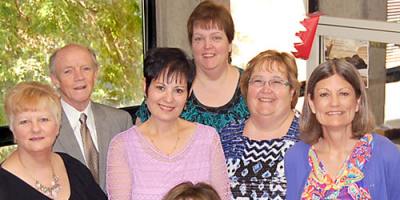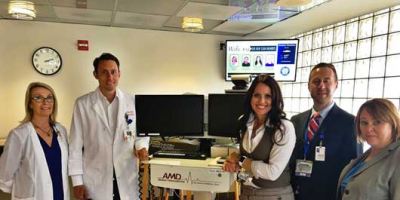Upstate is part of statewide initiative to increase breastfeeding rates
Upstate’s participation is centered on part of the collaboration, which includes 20 other hospitals from across the state. Together, these organizations will join efforts to improve hospital and worksite policies, practices, systems and environmental supports for breastfeeding to be consistent with state laws, regulations and other policies.
Cathy Patrick, coordinator of Upstate Women’s Health, is representing Upstate on the BQIH Collaborative and notes that there are many benefits for infants when breastfed. Exclusive breastfeeding is defined as an infant receiving only breast milk and no other liquids or solids except for drops or syrups.
“Exclusive breastfeeding for the first six months of life can help protect infants from a host of infectious diseases and reduce infant mortality,” said Patrick. “Despite the many benefits of breastfeeding for mothers and infants, only about 16 percent of American mothers breastfeed exclusively for six months.”
At the Jim and DeDe Walsh Family Birth Center, breastfeeding is encouraged and staff are available to assist new mothers to begin this method of feeding newborns. Additionally, expectant parents are offered information and education on breastfeeding through Upstate’s Best Beginnings classes.
Each facility participating in the cohort with Upstate will collect and analyze monthly data to track improvements in maternity care practices. During this process, a designated collaborative faculty will help support education on the topic of breastfeeding through regular coaching, presentations and webinars. A web-based discussion forum between the collaborating organizations also provides ongoing support for dialogue, questions and tips.
It is expected that by March 2018, the cohort will result in at least a 20 percent improvement from baseline in the percentage of infants who are exclusively breastfed, at least a 15 percent reduction from baseline in the percentage of breastfed infants using supplemental formula, and at least a 20 percent improvement from baseline in the percentage of exclusively breastfed infants whose primary or secondary insurance is Medicaid.
Susan Titus, RN, serves as an on-site lactation specialist to assist new mothers with breastfeeding.
Caption: Susan Titus, RN, serves as an on-site lactation specialist at Community Campus, which is participating in a statewide initiative to increase breastfeeding rates.





